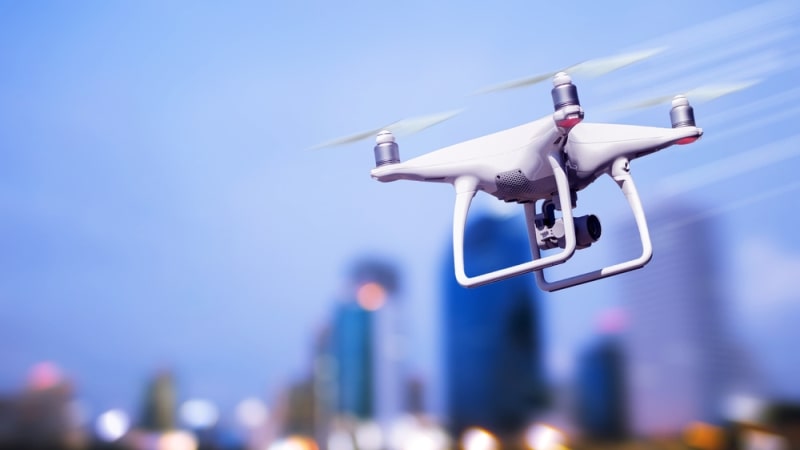
With drone warfare evolving at a rapid pace, industry experts told members of Congress on Tuesday that legislation is needed to expand drone detection authority broadly – and prevent a potential 9/11-style drone attack.
At a hearing held by the House Homeland Security Subcommittee on Transportation and Maritime Security, witnesses told lawmakers that this is especially important as the United States prepares to host globally significant events like the 2026 FIFA World Cup and the 2028 Summer Olympics.
“Without bold and immediate legislative action, the American public will remain unprotected from a drone attack. The industry agrees an attack is only a matter of time, it is not a matter of if it will happen,” said Brett Feddersen, the vice president of strategy and government affairs at D-Fend Solutions.
D-Fend Solutions is a counter-drone manufacturer of radio frequency cyber takeover solutions for drone threats, both domestically and internationally.
Specifically, Feddersen said industry public safety professionals and the American public are asking for legislation that takes three actions.
The first is to expand authorities to enable air domain awareness and drone protection to state and local law enforcement and trained security professionals guarding U.S. critical infrastructure. The second, he said, is to develop and implement a counter-drone training program using a federally accredited curriculum.
Feddersen said the third is to “provide dedicated funding programs that enable critical infrastructure operators to procure, train, deploy, and operate” counter-drone systems.
“The technologies exist. This is not a technology problem. We keep talking about it as though, how do we solve this problem? We solve this problem by getting a congressional mandate, getting funding, and allowing for innovative development programs to start testing these solutions,” said Tom Walker, the founder and CEO of DroneUP.
“The industry is ready to come together. I know we are. I know everyone else in our industry is – we just need direction. We need authority, and we need funding,” Walker added.
The current drone-countering authorities – authorized as part of the FAA Reauthorization Act of 2018 – are due to sunset in September. The legislation provides the departments of Homeland Security and Justice with limited authorities to detect, track, intercept, and seize drones.
It also leaves state and local law enforcement agencies unable to take action against nefarious drone use, according to Michael Robbins, the president and CEO of the Association for Uncrewed Vehicle Systems International.
“Until Congress extends and expands detection and mitigation authorities and allows for delegation to state and local law enforcement, unfortunately, those individuals, those great public servants, are left without many tools right now,” Robbins said. “That’s unfair to them and it’s unsafe to Americans.”
Subcommittee Chair Carlos Giménez, R-Fla., said he hopes that the United States doesn’t have an attack “similar to 9/11 for us to come together as a Congress and say, ‘These are the things that we need to do to counter this threat.’”
Rep. Giménez said the staff of the subcommittee will be reaching out to each witness, as well as other experts, to see what needs to be done to “come up with a strategy and an adequate defense of the homeland. Because, as you can tell, I’m really scared about this, and I think it’s just a matter of time.”
“You know, 9/11, you can say, ‘Gee, nobody thought about that.’ Well, we’ve thought about this now, and if we fail in this, it’s our failure,” the chairman warned. “We are thinking about it, and we need to do something about it.”
